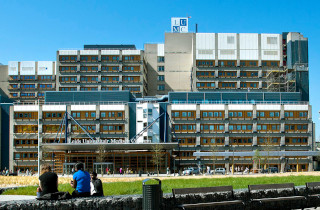PhD Candidate Molecular Immunology
PhD Candidate Molecular Immunology
You cannot apply for this job anymore (deadline was 31 Aug 2023).
Browse the current job offers or choose an item in the top navigation above.
Job description
Our team is interested in understanding the molecular mechanisms that drive innate immune activation upon viral infection or during sterile inflammation. We focus on the cytosolic RNA sensing machinery, which is activated by viral RNA and kickstarts an antiviral type I interferon response. Sometimes RNA sensors are accidentally activated by our own RNA molecules, leading to unwanted, chronic type I interferon production and immunopathology. This occurs, for example, in a number of rare genetic diseases called type I interferonopathies. The goal of our research is to understand how RNA sensors discriminate between viral and self-derived RNA to prevent sterile inflammation while ensuring an effective antiviral response. There are currently different projects available in our lab.
Specifications
- max. 36 hours per week
- €2789—€3536 per month
- Leiden View on Google Maps
Requirements
· You are an excellent and ambitious candidate with an MSc in biomedical sciences or a related field, and with a proven track record of achievement;
· Expertise in one of the following areas is a must: molecular biology, RNA biology, cell biology, or virology;
· The ideal candidate is able to work independently as well as in a team, has a pro-active attitude and outstanding organizational skills;
· Excellent communication skills in English are essential
Conditions of employment
Fixed-term contract: duration education.
You will be given an employment contract for the production of a PhD thesis for the duration of the program with a maximum of four years. The salary amounts to € 2,789 gross per month in the first year, up to a maximum of € 3,536 in the last year with fulltime employment (scale Pro, CLA UMC).
Employer
LUMC
At the Leiden University Medical Center, we continuously work on improving patient care. We invest in groundbreaking, international research and work with the latest equipment. Together with our team of doctors, medical specialists, teachers, academic researchers and supporting staff, we aim for the best quality in health care, education and international research. And we need you to realize our goals!
Department
Immunology department.
You will be working in the Immunology department. This department focuses on the development of vaccines and immunotherapy for cancer and other immune-related diseases. The department also works regularly with research groups inside and outside the LUMC. The research group of Annemarthe van der Veen studies how the innate immune system is activated during viral infection and in sterile inflammatory conditions. The innate immune system is activated upon infection with bacteria, fungi, and viruses. Innate immune cells detect microbial molecules via various receptors, with which they sample their environment for signs of infection. When they detect an infection, these receptors initiate defence pathways to destroy the pathogen. By studying the molecular mechanisms that underly innate immune activation, we aim to identify new targets for therapeutic intervention in autoinflammatory conditions and to inspire strategies to promote immunosurveillance in cancer.
Specifications
- PhD; Research, development, innovation
- Health
- max. 36 hours per week
- €2789—€3536 per month
- University graduate
- D.23.BH.CV.66
:fill(white)/logos/lumc-en-wide.png)
